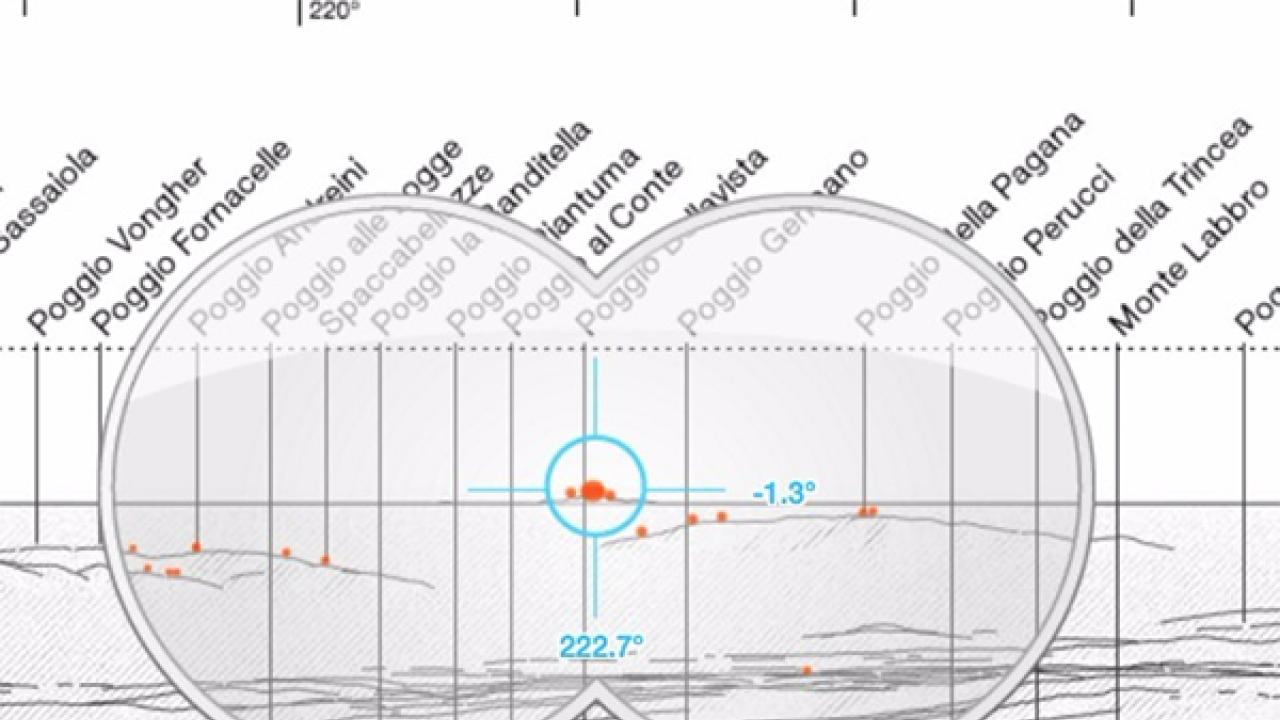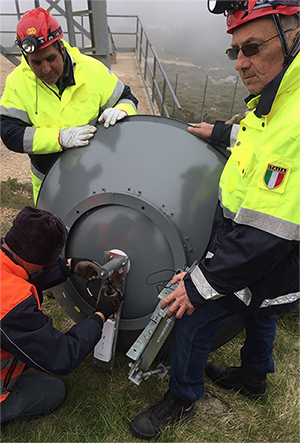
ICTP researchers are among a team who have developed a breakthrough in long-distance wireless technology. Using off-the-shelf equipment, the team established a wireless network spanning 304 km, from Sardinia to Tuscany, that reached data exchange rates of 354 megabits per second (Mbps), a world record for long-range wireless broadband.
This practical accomplishment originated from a collaborative project on digital technology for broadband communication. ICTP researchers Ermanno Pietrosemoli and Marco Zennaro of the Centre’s Telecommunications/ICT for Development (T/ICT4D) Wireless Laboratory coordinated the scientific features, while radio amateurs of Centro Italiano Sperimentazione e Attività Radiantistiche (CISAR) provided the towers to install the equipment at both ends and the manpower to perform the installation. Ubiquiti Networks provided the radio equipment used in the experiment.
Trying to link Italian coastal land through the Tyrrhenian Sea, the team installed 1.2-meter parabolic reflector antennas on Mount Amiata (Tuscany) and Mount Limbara (Sardinia), to provide signals strong enough to support the maximum throughput over the designed path. Despite the long distances involved and the vagaries of the weather on the top of the mountains, the whole installation took less than three days, although the measurements of the performance are still going on and the gathering of the data will continue.
"What makes this accomplishment significant is the extremely high data rate and spectral efficiency, which is the information rate that can be transmitted over a given bandwidth in a communication system,” says Pietrosemoli. "This link achieves broadband peak data rates up to 354 Mbps--176 Mbps in one direction and 179 Mbps in the opposite--using only 50 MHz of spectrum which is an outstanding result, although there are significant fluctuations on the received signal power." Moreover, explains Pietrosemoli, the link system has a latency of less than 3.5 ms, an important measure of networking performance, useful to avoid lag in data exchange for such activities as videoconferences.
The experiment represents the cooperation of three different partners: CISAR for exploring the cutting-edge technology; Ubiquiti Networks for collecting real-world data on the radio performance; and ICTP for the scientific aspects. “We will keep doing measurements using different polarizations and over different weather conditions, to gather more information about the performance of long wireless links over water,” states Zennaro, adding, “These measurements are quite useful to provide Internet access on many islands still lacking broadband access, especially in countries with limited financial means.” The ICTP Wireless group has already established a long-distance wireless connection in Venezuela, in late 2007, but at that time the connection was very slow. The latest attempt across the Tyrrhenian Sea is instead a new technical enhancement, and could increase network capacity significantly, without requiring a huge economic investment. Therefore, it provides an excellent implement for ongoing studies of broadband propagation, concludes Zennaro.
 |
Team members assemble the antenna in Limbara |
The T/ICT4D Wireless Laboratory at ICTP has a long tradition of organizing training activities, managing projects and carrying out research to find the best wireless solutions to support scientists from developing countries. “We have used wireless solutions to connect remote places in Africa, such as Malawi or Mozambique, and to connect hospitals or universities which would prove too costly with cabled links,” Zennaro says. “One of our ongoing projects regards African island countries, for instance Seychelles and Cape Verde, and their weather stations. It is difficult for them to transmit weather data because of their poor Internet connections. But with wireless devices, which are cheap, small countries can set up a good network without complex technology. The most important aim is to empower them with the required technical expertise to install and maintain the system.”
--Alessandro Vitale
















